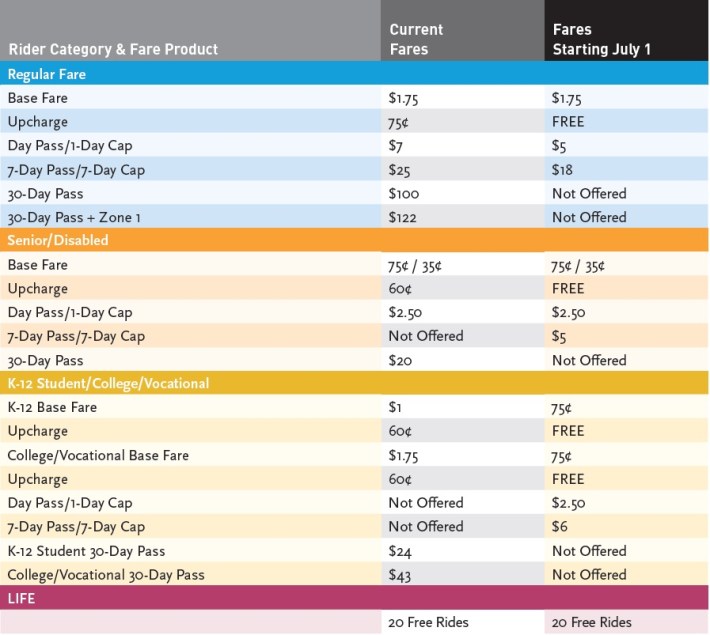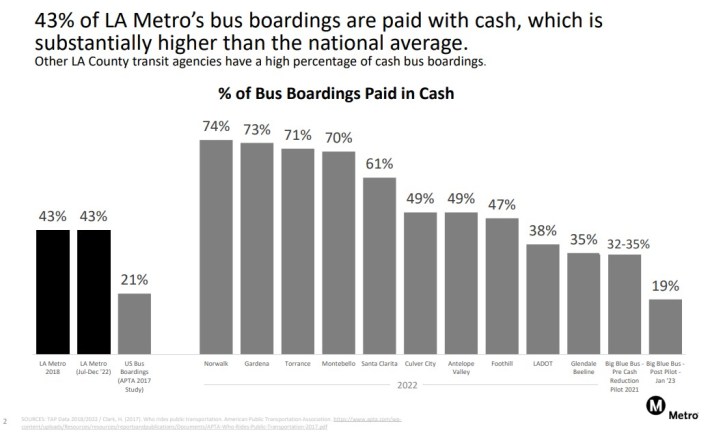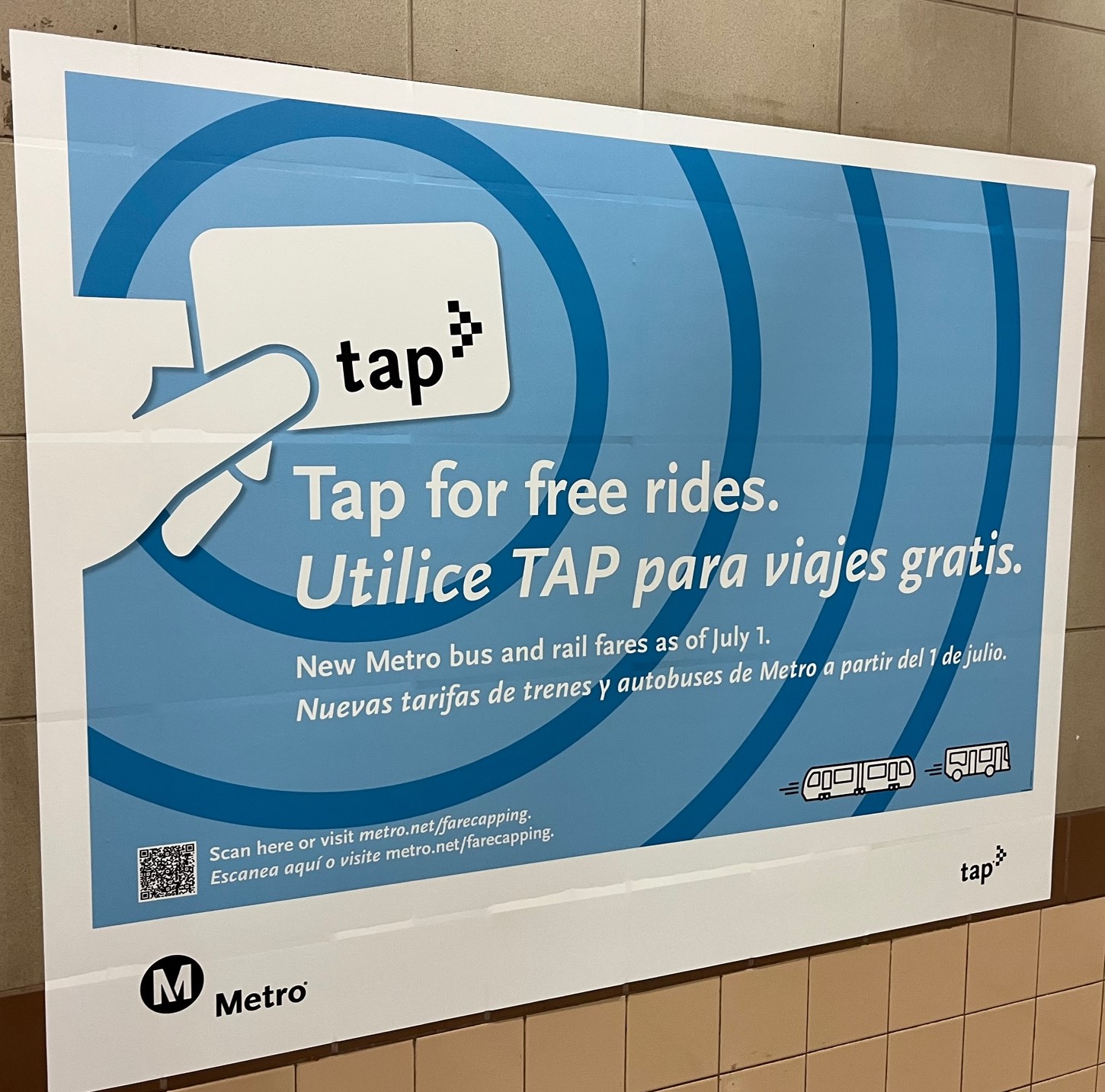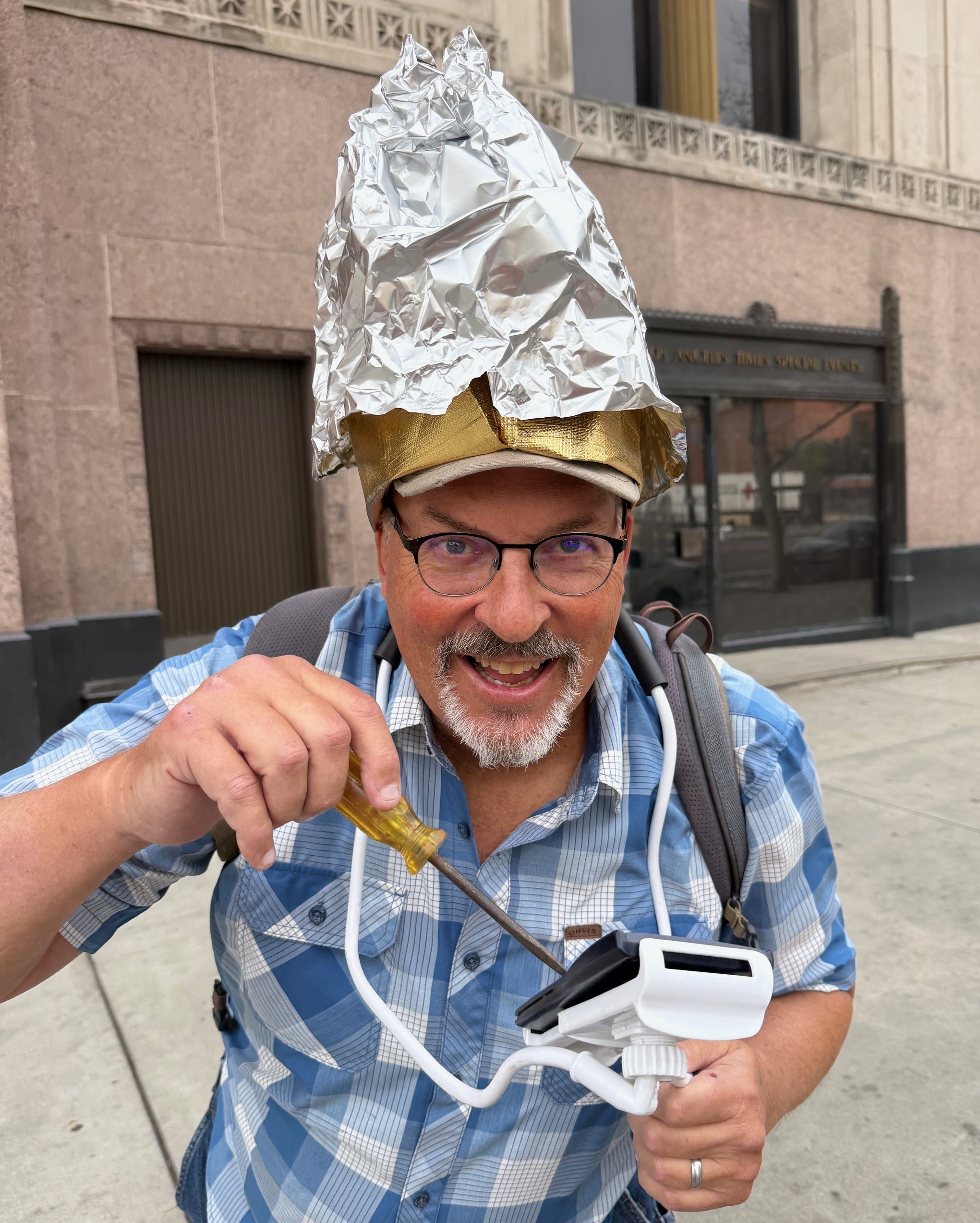Metro transit passes are going away after this month, but it's actually a good thing. Transit riders won't need to pay for passes in advance, because Metro will feature fare capping.
The way fare capping works is that transit riders don't have to purchase passes up front, because riders essentially get these passes on a pay-as-you-go basis. Today, riders purchase a day pass for $7. As of next month, there will be no passes, and riders will pay $1.75 for each trip. When, in the course of a day, a rider pays for their third trip (the total would have been $5.25 - three times $1.75), Metro will stop charging for rides that day. Daily fare payments max out a $5 daily cap.
Similarly, Metro weekly pay-as-you-ride charges max out at $18.
Discounted fares max out at a discounted cap - for example: seniors and folks with disability will pay $0.75 per trip, up to a maximum of $2.50 per day or $5 per week.
The full before/after fare chart is below - and at Metro's The Source (which includes details in Spanish, and a broader explanation of additional fare details: two hours of free transfers remain, freeway service charges go away, etc.).

Many frequent Metro riders are likely experience the July 1 changes as a small fare decrease. Infrequent riders are unlikely to see any differences, since base fare remains the same, and capping only applies when one takes more than a couple of transit trips on a given day or week.
Fare capping has been in the works at Metro for some time. An initial evaluation of fare capping was included in motion by Mayor Eric Garcetti at the outset of the pandemic. As the program worked its way through Metro, staff proposed tying capping to increased transit fares. Late last year that proposed fare hike was overridden by the Metro board which directed the agency to just add the new convenience of pay-as-you go fare caps alongside current fares.
One tricky downside of fare capping is that it will only be available to riders who pay via TAP card, not to cash paying riders.

To take advantage of fare capping, these riders would need to shift to a TAP fare card (costs $2). Metro will continue to accept cash payments, including allowing riders to load cash onto TAP onboard buses, and is undertaking a “Cash to TAP” campaign to make cash riders aware of the new benefits of TAP card use.







